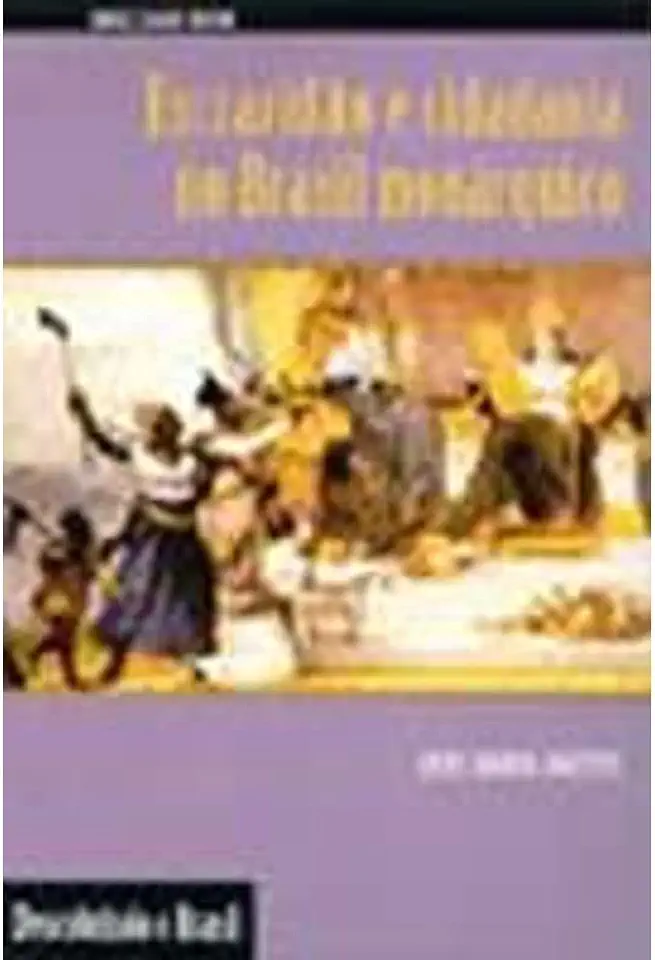
Slavery and Citizenship in Monarchic Brazil - Hebe Maria Mattos
Slavery and Citizenship in Monarchic Brazil: A Must-Read for Understanding Brazilian History
A Comprehensive Exploration of Slavery and Citizenship in Brazil
In her groundbreaking book, "Slavery and Citizenship in Monarchic Brazil," Hebe Maria Mattos delves into the complex relationship between slavery and citizenship in Brazil during the imperial period. Through meticulous research and analysis, Mattos sheds light on the ways in which slavery shaped Brazilian society and politics, and how it influenced the country's path towards independence and nation-building.
Unveiling the Contradictions of Brazilian Society
Mattos masterfully exposes the contradictions inherent in Brazilian society during the 19th century. Despite the country's declaration of independence in 1822, slavery remained a central institution, with nearly 40% of the population enslaved. This stark reality created a profound tension between the ideals of liberty and equality espoused by the nation's founders and the brutal reality of slavery.
The Struggle for Citizenship and the Abolitionist Movement
Mattos meticulously traces the struggles of enslaved individuals and abolitionist movements to challenge the institution of slavery and claim their rights as citizens. She highlights the pivotal role of enslaved people in shaping their own destiny, forming resistance networks, and demanding their freedom. The book also sheds light on the contributions of prominent abolitionist leaders, such as Luiz Gama and André Rebouças, who tirelessly fought for the abolition of slavery and the recognition of equal citizenship for all Brazilians.
A Call for Social Justice and Equality
"Slavery and Citizenship in Monarchic Brazil" serves as a powerful reminder of the enduring legacy of slavery and its impact on contemporary Brazilian society. Mattos' work challenges readers to confront the contradictions and injustices of the past and inspires them to work towards a more just and equitable future. This book is a must-read for anyone interested in Brazilian history, slavery, citizenship, and the ongoing struggle for social justice.
Key Themes and Insights
Throughout the book, Mattos explores several key themes and offers valuable insights into the complex dynamics of slavery and citizenship in Brazil:
The Contradictions of Brazilian Society: Mattos highlights the dissonance between the ideals of liberty and equality espoused by the Brazilian elite and the reality of widespread slavery. This contradiction shaped the country's political and social development and fueled tensions that would eventually lead to the abolition of slavery.
The Resistance of Enslaved Individuals: Mattos emphasizes the agency and resistance of enslaved individuals, who played a crucial role in challenging the institution of slavery. She explores the various forms of resistance, from individual acts of defiance to collective rebellions, and demonstrates how these actions contributed to the growing momentum for abolition.
The Role of Abolitionist Movements: Mattos sheds light on the tireless efforts of abolitionist movements and leaders in Brazil. She examines their strategies, tactics, and alliances, and highlights the significant impact of their work in raising awareness about the horrors of slavery and mobilizing public support for abolition.
The Legacy of Slavery: Mattos concludes by reflecting on the enduring legacy of slavery in Brazilian society. She argues that the country's history of slavery has left deep scars that continue to shape racial inequalities, social divisions, and political dynamics in contemporary Brazil.
A Must-Have for Scholars and History Enthusiasts
"Slavery and Citizenship in Monarchic Brazil" is an essential resource for scholars, students, and history enthusiasts interested in Brazilian history, slavery, citizenship, and social justice. Mattos' meticulous research, insightful analysis, and compelling narrative make this book a must-have for anyone seeking a deeper understanding of Brazil's past and its implications for the present.